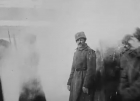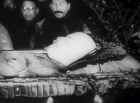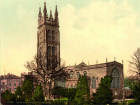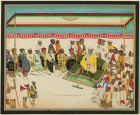Politics
Human society is always surrounded by politics of some sort. Whether it is the basic negotiation of leadership and obedience of rules for clans or soldiers or, the more sophisticated set up of the modern world the relationship of control and decision making is always around. Grouped together in this strand are articles and podcasts covering the systems of the ancient world in Greece and Rome, alongside the stories of revolution in Europe, the creation of treaties and alliances and the arguments amongst political parties today.
Sort by:
Date (Newest first) | Title A-Z
Show:
All |
Articles |
Podcasts |
Multipage Articles
-

Film: Lenin and the Russian Civil War
ArticleClick to view -

Film: Lenin's legacy
ArticleClick to view -

Films: Lenin – Interpretations
31st January 2025Click to view -

Films: Khrushchev – Interpretations
9th October 2024Click to view -

Film: Khrushchev - Background
ArticleClick to view -

Films: Boris Yeltsin – Interpretations
19th June 2024Click to view -

Films: Joseph Stalin – Interpretations
27th March 2024Click to view -

Political and social attitudes underpinning the 1924 Olympics
ArticleClick to view -

Who only history know? Cricket, society, and the historical oversight of sport
ArticleClick to view -

Out and About in ‘The most Loyal and Ancient City of Taunton’
ArticleClick to view -

The Importance of Truth, Quality and Objectivity in the BBC German Service from 1938 to 1945
ArticleClick to view -

Real Lives: Maharaja’s German: Anthony Pohlmann in India
ArticleClick to view -

Why White Liberals Fail: United States politics in an election year
ArticleClick to view -

Films: Mikhail Gorbachev – Interpretations
ArticleClick to view -

‘A little bird told me’: spies and espionage in the early medieval world
ArticleClick to view -

Bonapartism after Napoleon III: the Prince Imperial and Eugene Loudun
ArticleClick to view -

Ending Camelot: the assassination of John F Kennedy
ArticleClick to view -

Anti-Americanism in Britain during the Second World War
ArticleClick to view -

Women and the French Revolution: the start of the modern feminist movement
ArticleClick to view -

History Abridged: American Policy: theory and practice over 200 years
ArticleClick to view

